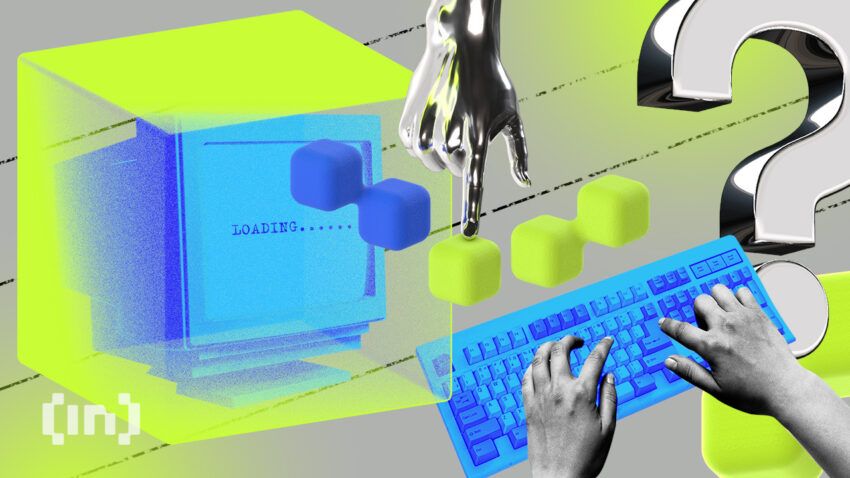The battle for investment capital
In today’s rapidly evolving technology landscape, two heavyweights have emerged to compete for investors’ attention and support. AI startups and cryptocurrency, blockchain and Web3 projects find themselves locked in a high-stakes duel for dollars.
Here we examine this intense competition and the factors driving the funding race in these innovative sectors.
Competition among innovators
Battles are intensifying among AI startups and cryptocurrency, blockchain and web3 projects as they all vie for limited funds amid the AI funding frenzy. The rapid pace of technological progress has spurred investor interest, setting off a race to secure support for breakthrough innovations.
AI Gold Rush
Post-ChatGPT sees generative AI startups skyrocket in funding and valuations, setting off a fervent investment race. Companies like OpenAI and DeepMind are leading the way in the AI landscape, attracting billions of dollars in investment. These firms have demonstrated the transformative potential of AI, luring investors to explore new startups for lucrative opportunities.
The scarcity factor
The scarcity of AI experts and startups in the field is fueling aggressive competition among investors. With demand outstripping supply, even fledgling companies with promising ideas and expertise command astounding valuations.
This phenomenon has led to bidding wars for AI talent and acquisitions, as tech giants and venture capitalists vie for a share of the fast-growing market.
Clash of the Tech Titans
The fierce battle for funds between AI startups and crypto projects has many ramifications, as both sectors struggle to secure resources from a dwindling investment capital pool. As AI companies continue to raise funding, crypto projects face increasing challenges in capturing investors’ attention and resources.
A tale of two innovations
AI startups and crypto projects are locked in a battle for dollars. This competition is fueled by the rapid growth of AI funding and a seemingly insatiable appetite for investment opportunities. Against this backdrop, the lack of AI expertise and startups in the field is leading to increased competition, pushing valuations to dizzying heights.
Riding the ChatGPT wave
The advent of ChatGPT has ignited an AI funding frenzy, especially for generative AI startups. As a result, investors try to find the most promising companies in the field. The technology’s potential to revolutionize industries has investors clamoring for a piece of the action, resulting in a rapid influx of funding and inflated valuations. And AI-powered applications in sectors such as healthcare, finance and logistics are transforming traditional business models, further fueling investor enthusiasm.
Seeking capital in a tight market
Cryptocurrency, blockchain and web3 projects are also competing for investment, but they face an increasingly crowded market. The rise of AI has reduced the spotlight on these innovations, making it more challenging to secure funding from a shrinking pool of capital. Despite this, projects such as Ethereum, Cardano and Polkadot continue to move forward, developing new solutions and attracting niche investors.
Confronting scarcity
With a limited number of AI experts and startups, the competition is intensifying. Investors are keen to exploit the industry’s potential, but with limited access to opportunities, the battle is getting tougher, and valuations for even embryonic companies are skyrocketing. Talent wars are raging, with tech giants such as Google, Amazon and Meta vying for the brightest minds in AI research.
Implications of the funding Face-Off
This heated rivalry between AI startups and crypto projects could have dramatic consequences. First, the scarcity-driven rise in valuations could create an AI bubble, as investors pour money into companies that may not deliver on their promises. Conversely, crypto projects may struggle for funding in the shadow of AI, potentially hindering innovation and growth in the sector.
Challenges in securing resources
Both AI startups and crypto projects face obstacles in raising resources from an increasingly scarce pool of investment capital. As a result, competition may force these enterprises to seek alternative sources of funding, explore strategic partnerships or turn to crowdfunding platforms to secure the necessary support. In some cases, mergers and acquisitions can emerge as viable options for companies looking to consolidate resources and accelerate growth.

The way forward
With increasing competition, AI startups and crypto projects must adapt to the evolving investment landscape. As AI funding continues, both sectors must innovate and strategize to secure their share. Ultimately, the outcome of this battle could shape the future of technology and the economy, determining which innovations thrive and which fade away.
Potential winners and losers
The competition between projects can produce a series of winners and losers. Investors who back the right companies will reap significant gains. On the other hand, those who choose poorly can experience significant losses. At the same time, the competition can hinder the progress of some projects that are struggling to secure funding, and rob the world of potentially game-changing innovations.
Strategies for success
To succeed in this competitive environment, AI startups and crypto projects must adopt a variety of strategies. AI companies can focus on niche applications and collaborate with industry players. And crypto projects should emphasize utility, target market segments and collaborate with key stakeholders to attract investment.
The future of financing
As AI and crypto projects continue to innovate, the funding landscape is likely to evolve in response. New financing models may emerge, and new investment opportunities may materialize. So investors and companies alike must remain nimble and adapt to the changing dynamics to secure their place in the technology landscape. The duel for dollars will shape the trajectory of both industries. Ultimately, it determines which innovations will dominate in the coming years.
Disclaimer
In accordance with Trust Project guidelines, this feature article presents the opinions and perspectives of industry experts or individuals. BeInCrypto is dedicated to transparent reporting, but the views expressed in this article do not necessarily reflect the views of BeInCrypto or its employees. Readers should verify information independently and consult with a professional before making decisions based on this content.


